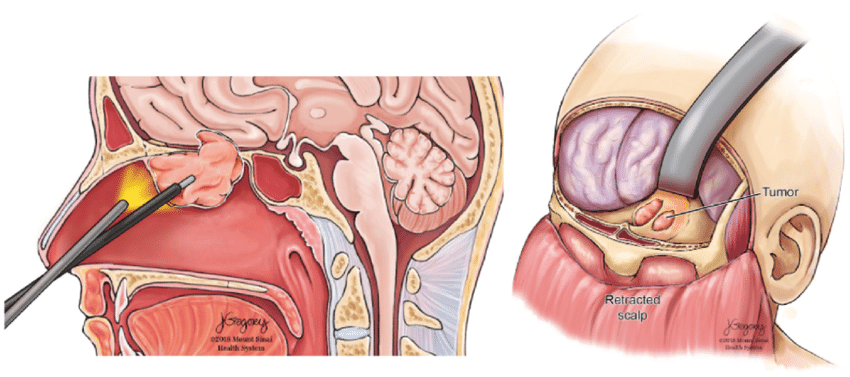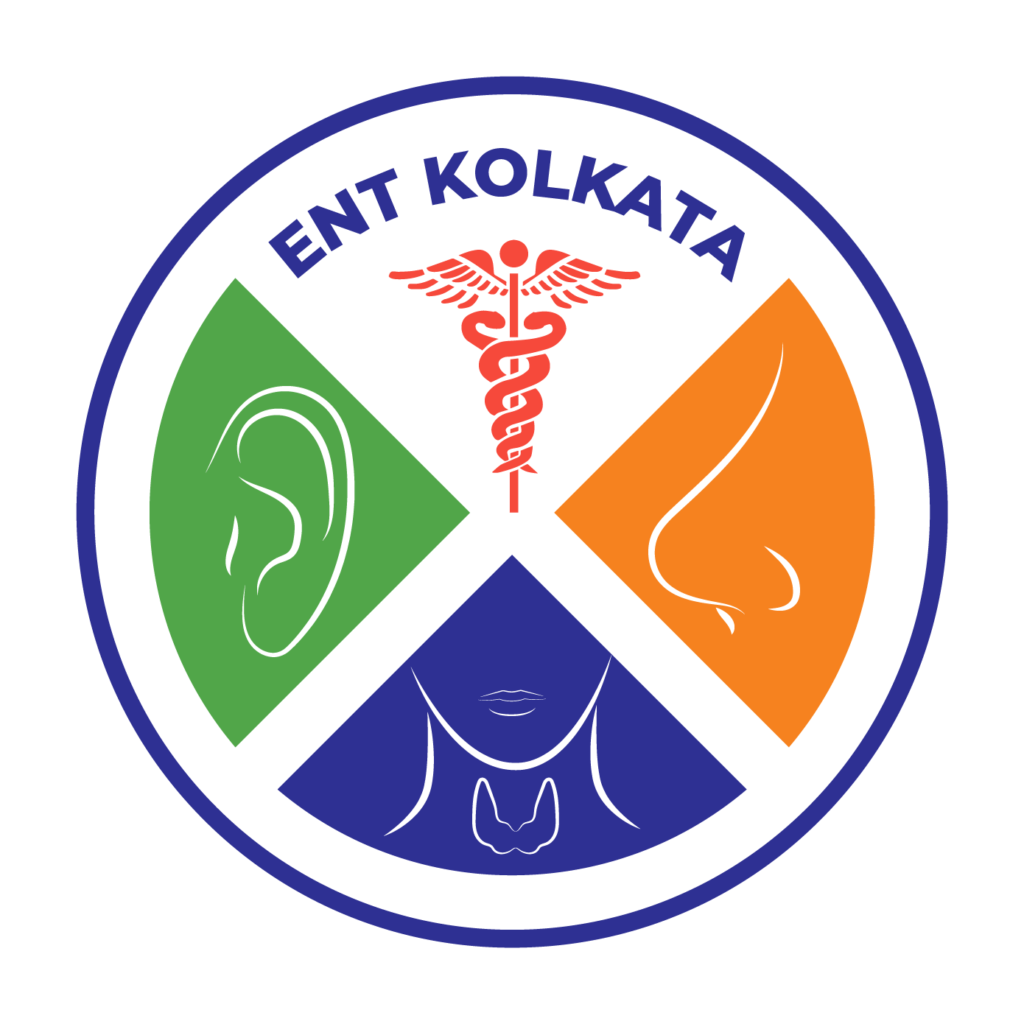Endoscopic anterior skull base surgery is a minimally invasive surgical technique used to treat various conditions and lesions located at the base of the skull in the front portion (anterior) of the skull. This approach involves the use of an endoscope, which is a thin, flexible tube with a camera and light attached to it. Surgeons use the endoscope to access and treat these conditions through small incisions, often avoiding the need for more extensive, open surgeries. Here are some common indications and conditions for endoscopic anterior skull base surgery:
Pituitary Tumors:
- Endoscopic surgery is frequently used to remove pituitary tumors (e.g., pituitary adenomas) located at the base of the skull. This minimally invasive approach can spare healthy brain tissue and reduce the risk of complications.
Sinus Tumors:
- Certain types of tumors, such as esthesioneuroblastomas and olfactory neuroblastomas, can develop in the sinuses near the anterior skull base. Endoscopic surgery allows for precise tumor removal with minimal disruption to surrounding structures.
Meningiomas:
- Some meningiomas, which are slow-growing brain tumors, can occur at the anterior skull base. Endoscopic surgery can be a suitable approach for their resection.
CSF Leaks:
- Cerebrospinal fluid (CSF) leaks can occur due to trauma, surgery, or spontaneous causes. Endoscopic repair of CSF leaks is a less invasive option compared to traditional open procedures.
Nasal and Sinus Conditions:
- Endoscopic sinus surgery can be performed to treat chronic sinusitis, nasal polyps, and sinus obstructions that affect the anterior skull base.
Skull Base Reconstruction:
- After tumor removal, endoscopic techniques may be used for skull base reconstruction to prevent complications such as CSF leaks.
Endoscopic anterior skull base surgery offers several advantages, including smaller incisions, reduced scarring, shorter hospital stays, and faster recovery times compared to open surgical approaches. However, the specific surgical procedure and approach will vary based on the patient’s condition, the location of the lesion, and the expertise of the surgical team.
It’s important to consult with a neurosurgeon, otolaryngologist (ENT specialist), or a multidisciplinary team of specialists to determine the most appropriate treatment approach for your specific condition. These surgeries are highly specialized and require a skilled surgical team with experience in endoscopic skull base procedures.
If you are experiencing any of the symptoms described above, call our Best ENT surgeon in kolkata – ENT Care in Kolkata – Dr. Indranath Kundu. Best doctor for ENT
Schedule your appointment at the Ear, Nose, and Throat Center today, call +91-98360-18897. Or Fill Up This Form

